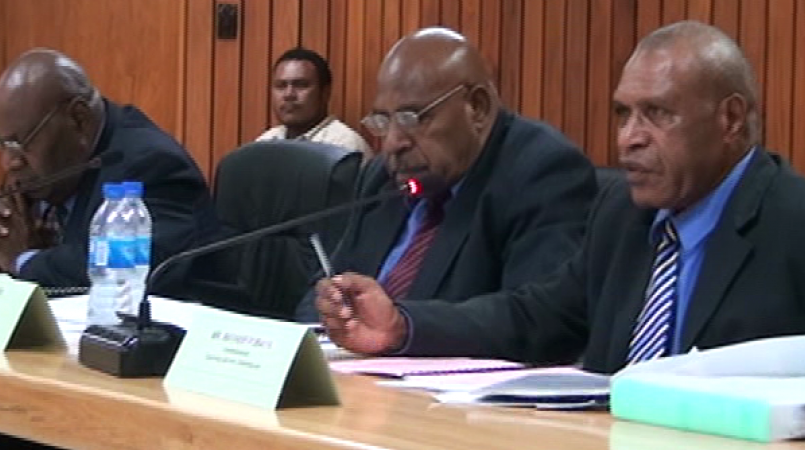
The implementation of the Ganim Report 2014 pertaining to fixation of teachers leave fares, postings and other entitlements is progressing well.
However, it should have been better with the outstanding funding of K7.826 million was given by the Government.
Teaching Service Commission Chairman, Baran Sori who is also the Chairman of the implementation taskforce said one of the biggest task that has now been complete was a data base for teachers.
He said having the correct knowledge of teachers’ recruitment and postings in a given calendar year was very important for Waigani to plan, administer and manage the 57,000 teacher workforce in the country.
In March, 2015 Cabinet approved K7.826 million for the phase 1 implementation of the Ganim Report however, Minister Kuman told Parliament that “despite making continuous attempts with Finance and Treasury to get that money all attempts have been unsuccessful”.
The Ganim Report or in full – the Parliamentary Referral Committee on Education (PRCE) - Report headed by Wabag MP, Robert Ganim was adopted by Parliament on August 26, 2014 and in March, 2015 cabinet approved a total funding of K26 million for the Ganim Report to be implemented over a five year period 2014-2019, making it one of the few Parliamentary Committees’ report to be funded and implemented by any one Government since Independence.
Sori added that as per PRCE recommendation two TSC was also having discussions with the National Economic and Fiscal Commission (NEFC) on Rural and Remote Allowances for teachers serving in remote locations in the country with the view to introduce new scales on the PARI Index (a measurement system to determine level of remoteness).
According to Sori, the cost of living for teachers serving in remote schools must be compensated based on “moderate”, “remote”, “very remote” and “extreme remote” scales on the PARI Index instead of a fixed across-the-board payment to all rural/remote school serving teachers.
Sori said despite the financial shortcoming (of K7.826 million), his PRCE implementation Committee was already implementing: i) PRCE recommendations 9 & 12 - successful adoption of TSC new administrative structure and creation of 55 new staffing positions mostly provincial base sanctioned by the Salaries and Conditions Monitoring Committee (SCMC), ii) PRCE recommendation 12 - successful rolling out of TSC advisors to be based in provinces starting with “pilot” trials in Enga and Chimbu provinces this year, and others.
